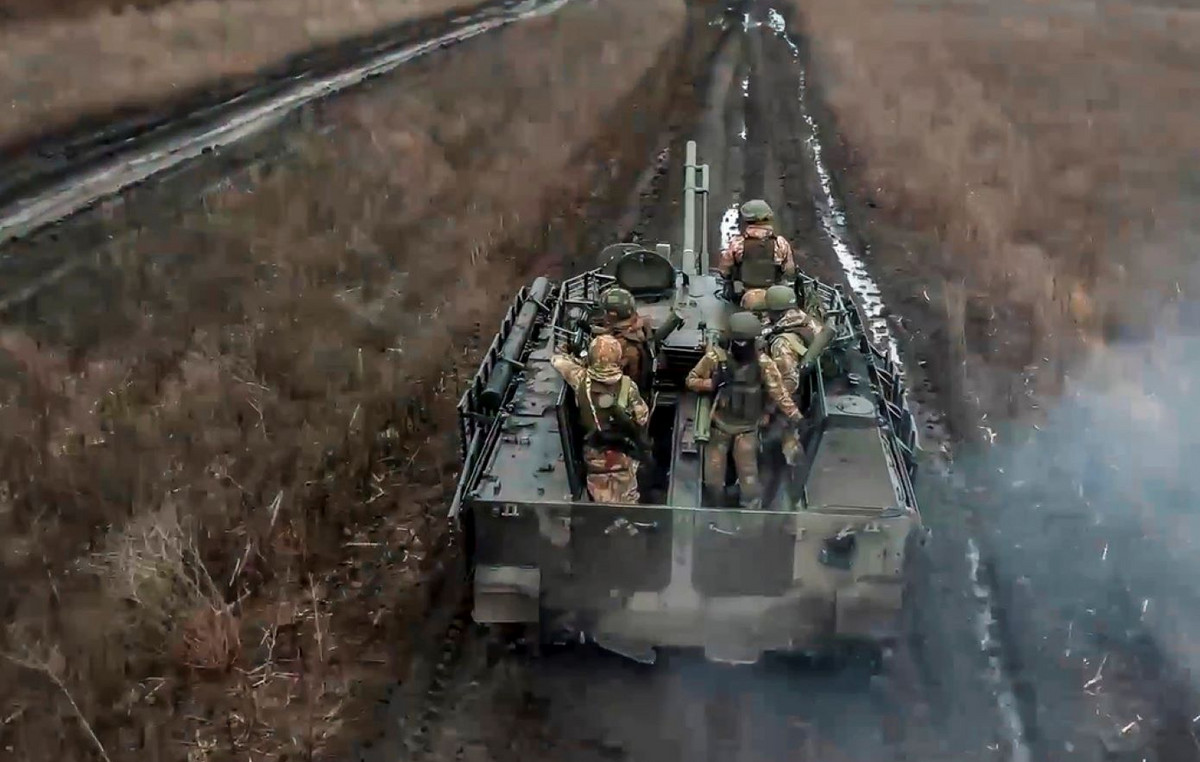Syria’s new authorities launched drastic security measures on Thursday in a coastal region where 14 police officers were killed the day before, promising to pursue “remnants” of the ousted government of Bashar al-Assad suspected of having committed the attack, according to press reports. state.
The violence in Tartous province, part of the coastal region that is home to many members of Assad’s Alawite sect, marked the deadliest challenge yet to rebel-led authorities.
The new government’s security forces launched the operation to “control security, stability and civil peace, and to pursue the remnants of Assad’s militias in the woods and hills” in rural areas of Tartous, according to the state news agency Sana .
Members of the Alawite minority, a branch of Shiite Islam, exerted great influence in Syria led by Assad. They dominated the security forces that Assad used against his opponents during the 13-year civil war and to crush dissent during decades of bloody oppression.
Reflecting sectarian tensions, protesters shouted “Oh Ali!” during a demonstration outside the local government headquarters in Tartous, according to images posted on social media last Wednesday. Reuters verified the location of the images.
The chant was a reference to Ali ibn Abi Talib, a cousin of the Prophet Muhammad who is revered by Muslims but especially respected by Alawites and Shiites, who believe that Ali and his descendants should have led the Islamic community.
Hayat Tahrir al-Sham, the former al Qaeda affiliate that led the rebel campaign that toppled Assad, has repeatedly promised to protect minority religious groups who fear the new rulers might try to impose a conservative form of Islamic government.
According to the Sana agency, Mohammed Othman, newly appointed governor of the coastal region of Latakia, adjacent to the Tartous area, met with Alawite sheikhs to “encourage community cohesion and civil peace on the Syrian coast.”
Recent protests in Syria
The Syrian Ministry of Information declared a ban on what it described as “the circulation or publication of any media content or news with a sectarian tone aimed at spreading division” among Syrians.
The Syrian civil war took on sectarian dimensions when Assad turned to Shiite militias from across the Middle East, mobilized by his ally Iran, to combat the insurgency dominated by members of the Sunni Muslim majority, many of them Islamists.
Dissent also emerged in the city of Homs, 150 kilometers north of Damascus. State media reported that police imposed a curfew overnight on Wednesday following disturbances linked to demonstrations that residents said were led by members of the Alawite and Shiite religious communities.
Understand the conflict in Syria
The Assad family regime was overthrown in Syria on December 8, after 50 years in power, when rebel groups took over the capital Damascus.
President Bashar al-Assad has fled the country and is in Moscow after gaining asylum, according to a source in Russia.
Syria’s civil war began during the Arab Spring in 2011, when the regime of Bashar al-Assad suppressed a pro-democracy uprising.
The country was plunged into full-scale conflict when a rebel force was formed, known as the Free Syrian Army, to fight government troops.
Furthermore, the Islamic State, a terrorist group, also managed to gain a foothold in the country and came to control 70% of Syrian territory.
Fighting escalated as other regional actors and world powers — from Saudi Arabia, Iran, the United States to Russia — joined in, escalating the country’s war into what some observers described as a “proxy war.”
Russia has allied with Bashar al-Assad’s government to fight the Islamic State and rebels, while the United States has led an international coalition to repel the terrorist group.
After a ceasefire agreement in 2020, the conflict remained largely “dormant”, with minor clashes between the rebels and the Assad regime.
More than 300,000 civilians have been killed in more than a decade of war, according to the UN, and millions of people have been displaced across the region.
Find out who the Syrian rebel leader is and the group that overthrew Bashar al-Assad
This content was originally published in Syria’s new rulers adopt security measures in the coastal region on the CNN Brasil website.
Source: CNN Brasil
Bruce Belcher is a seasoned author with over 5 years of experience in world news. He writes for online news websites and provides in-depth analysis on the world stock market. Bruce is known for his insightful perspectives and commitment to keeping the public informed.







